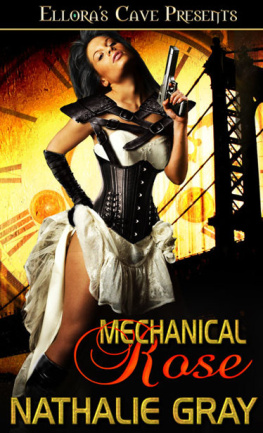Nathalie Léger - Exposition
Here you can read online Nathalie Léger - Exposition full text of the book (entire story) in english for free. Download pdf and epub, get meaning, cover and reviews about this ebook. year: 2020, publisher: Dorothy, a publishing project, genre: Humor. Description of the work, (preface) as well as reviews are available. Best literature library LitArk.com created for fans of good reading and offers a wide selection of genres:
Romance novel
Science fiction
Adventure
Detective
Science
History
Home and family
Prose
Art
Politics
Computer
Non-fiction
Religion
Business
Children
Humor
Choose a favorite category and find really read worthwhile books. Enjoy immersion in the world of imagination, feel the emotions of the characters or learn something new for yourself, make an fascinating discovery.
- Book:Exposition
- Author:
- Publisher:Dorothy, a publishing project
- Genre:
- Year:2020
- Rating:4 / 5
- Favourites:Add to favourites
- Your mark:
- 80
- 1
- 2
- 3
- 4
- 5
Exposition: summary, description and annotation
We offer to read an annotation, description, summary or preface (depends on what the author of the book "Exposition" wrote himself). If you haven't found the necessary information about the book — write in the comments, we will try to find it.
Exposition — read online for free the complete book (whole text) full work
Below is the text of the book, divided by pages. System saving the place of the last page read, allows you to conveniently read the book "Exposition" online for free, without having to search again every time where you left off. Put a bookmark, and you can go to the page where you finished reading at any time.
Font size:
Interval:
Bookmark:
Originally published in French as LExposition
in 2008 by Editions POL, Paris, France
English-language translation Amanda DeMarco, 2019
First English edition published by Les Fugitives, London, December 2019
First U.S. edition, 2020
All rights reserved, including the right of reproduction in whole or in part in any form.
Cet ouvrage a bnfici du soutien des Programmes daide
la publication de lInstitut franais.
The publisher wishes to thank Halley Parry and Irina Teveleva.
ISBN: 978-1-948980-03-6
Ebook ISBN: 978-1-948980-04-3
Art on cover:
La Frayeur (186167) by Pierre-Louis Pierson
Salted paper print from glass negative with applied color
5 5 15/16 in
David Hunter McAlpin Fund, 1975
Design and composition by Danielle Dutton
Printed on permanent, durable, acid-free recycled paper
in the United States of America
Dorothy, a publishing project
DOROTHYPROJECT.COM
TRANSLATED FROM THE FRENCH
BY AMANDA DEMARCO
D OROTHY, A PUBLISHING PROJECT
But shes nothing to you, why do
No, Louise said.
Shes nothing
No, she repeated submissively. But she continued looking at something in front of her which he could not see.
Then
Then nothing, she said.
CLAUDE SIMON, THE GRASS
S URRENDER , PREMEDITATE NOTHING , WANT NOTHING , neither discern nor dissect nor stare, but rather shift, dodge, lose focus, andslowing downconsider the only material that presents itself, as it presents itself, in its disorder and even in its order.
It was said that her beauty was astounding, that she was still and ferocious. The Princess of Metternich confessed, upon seeing her make an appearance: I was petrified before this miracle of beauty: marvelous hair, the waist of a nymph, complexion of pink marble! Like Venus descended from Mount Olympus! Never have I seen such a beauty, and never shall I see another like it! In her ferocity, she settles onto a sofa and allows herself to be admired as though she were a reliquary, absent in the midst of the crowd, her gaze cold and impassive. She is hated for her power; her beautythey saidputs other beauties to flight. At the height of the Crimean War, a marquise notes that her arrival posed itself like a diminutive Eastern Question. Those around her seek the shadow of a fault. They are delighted by her ostentation: If she had been simple and natural, she would have turned the world upside-down we are certainly fortunate that the countess had no such simplicity, says Pauline von Metternich. They contemplated her beauty the way people enjoyed freak shows.
It was by coincidence, at the top of a small wooden staircase in the dilapidated bookshop of a provincial town, that I came across her. I was dumbfounded, but not by the image alone. A woman charging across the cover of a catalog, La Comtesse de Castiglione par elle-mme . I was chilled by the evil of her gaze, petrified by the violence of this figure bursting forth. I thought without really comprehending: Myself by her against me in a fit of mental mumbling that abated somewhat later when I overheard a woman on the 95 bus tell another woman a long, doleful story of jealousy. Just as she was getting off, she said: You understand, my problem isnt him, its her, its the other woman. On the winding path of femininity, the loose stone you stumble over is another woman ( lautre thats what we called the woman my father left my mother for Lautre became her name, a name that allowed her no identity of her own, connecting only to her function; Lautre , illegitimate, not the mother; Lautre , whatever she might do, you hate her, you want her).
She enters. She is roused by anger and reproach. She bursts onto the right of the image as if it were a backdrop masked with curtains. One hand clutches a knife against her waist, which gleams obliquely across her belly. Her face is cold, her mouth thin, lips tight, eyebrows knit, her gaze is clear and hard, her hair is slicked into two little severely parted plaits. The knife, whose handle disappears into her balled fist, vibrates at the very center, its blade so white that it nearly disappears in the luminous satins of her dress. But its tip pierces the center of the image, its focal point. As if the fullness of her garments werent enough, she grasps the faille silk curtain, pulling it toward her in a strangely chaste gesture. It is not her body she wants to conceal, certainly not, but rather the faux backdrop, overfilled with a tinplate pedestal table whose foot threatens to invade the image. This woman entering, she wants to kill. Theatrical killing? Yes, no one would doubt it, she is definitely on a stage, pretending to ensure that everything has the semblance of truth. But like any great actress, she is pretending to be pretending. This woman entering, she wants to kill.
I searched my library for the catalog on her, la Castiglione, which I had purchased and promptly put away. Immediately I sensed my old aversion toward the images, toward this ferocity, this melancholy without depth, this defeat. Nothing about the destiny of this woman who spent so many hours having herself photographed was familiar to me, yet when I opened this book of images, I had the strange feeling of returning home and, although the house was destroyed, of returning in fear, in recognition.
Back then, I was working on a project about ruinsyet anotherwith carte blanche from Cultural Heritage. Their directive referred to sensitivity to the inappropriable, erasure of form, and acute awareness of a tragic era. Each project had to be based on a landmark historical work. They suggested I work with the museum in C***. I was to choose a single piece in their collection then elaborate on its theme, the cultural attach advised me with a small embarrassed smile, as if he had just made a lewd joke. I was then to showcase the chosen piece with contemporary works borrowed from other museums. I first thought of the reportage of Roger Fenton, the British photographer who was sent by Queen Victoria to the front of the Crimean War. On a dim day in 1855, he created the strange and famous image of a dreary ravine strewn with cannonballsor are they stones or skulls?scattered regularly across a lifeless countryside. I dreamed of acquiring it one day. But that photograph wasnt in the museums collections. And so, while awaiting the inventory list that the attach had promised to send me, Id sought out the catalog about this woman, Castiglione, the catalog I had bought and immediately put away, and that contained several documents belonging to the museum in C***.
On the radio one day, I heard Jean Renoirs pleasantly booming voice talking about The Rules of the Game : The subject totally gobbled me up! A good subject always takes you by surprise and carries you away. For years, I had thought that to write you needed, at the very least, to master your subject. Many reviewers, famous writers, and critics have said that to write you have to know what you want to say. They repeat, hammering it home: you have to have something to say, about the world, about existence, about, about, about. I didnt know then that the subject is precisely what masters you. Or that the littlest thing could swallow you up. That day, I picked up a book at random; it was a book about pythons, how pythons devour things, the gaze of the animal taken by surprise, being swallowed, gobbled up by the still, ferocious subject that makes you spit out whatever you thought you knew; the enormous, hidden subject, incomprehensible, powerful, more powerful than you, tenuous, a detail, an old memory, seemingly insignificant, but it grips you, inexorably you merge with it until slowly you begin to spit out disturbing visions, elusive but insistent ghosts.
Font size:
Interval:
Bookmark:
Similar books «Exposition»
Look at similar books to Exposition. We have selected literature similar in name and meaning in the hope of providing readers with more options to find new, interesting, not yet read works.
Discussion, reviews of the book Exposition and just readers' own opinions. Leave your comments, write what you think about the work, its meaning or the main characters. Specify what exactly you liked and what you didn't like, and why you think so.

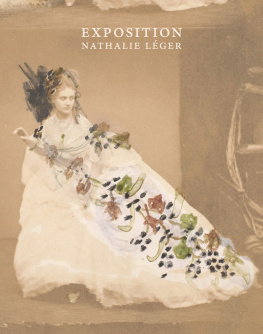
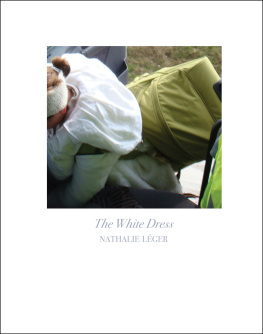

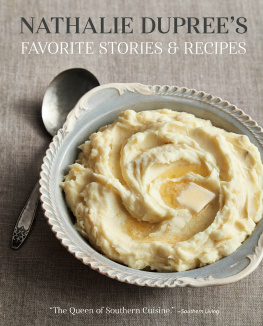


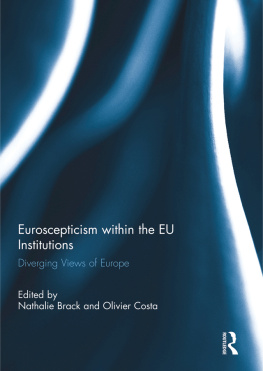
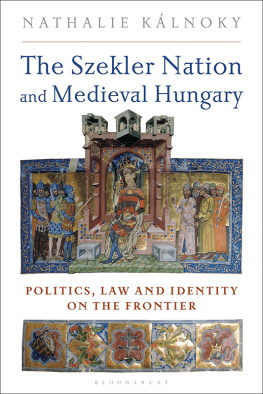
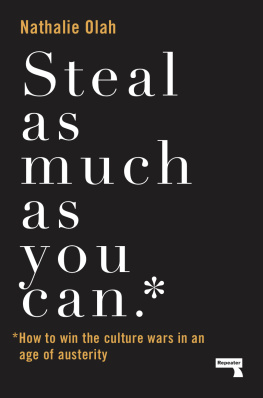
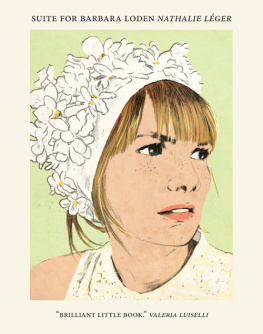
![Nathalie Nahai [Nathalie Nahai] - Webs of Influence: The Psychology of Online Persuasion, 2nd Edition](/uploads/posts/book/124053/thumbs/nathalie-nahai-nathalie-nahai-webs-of.jpg)

